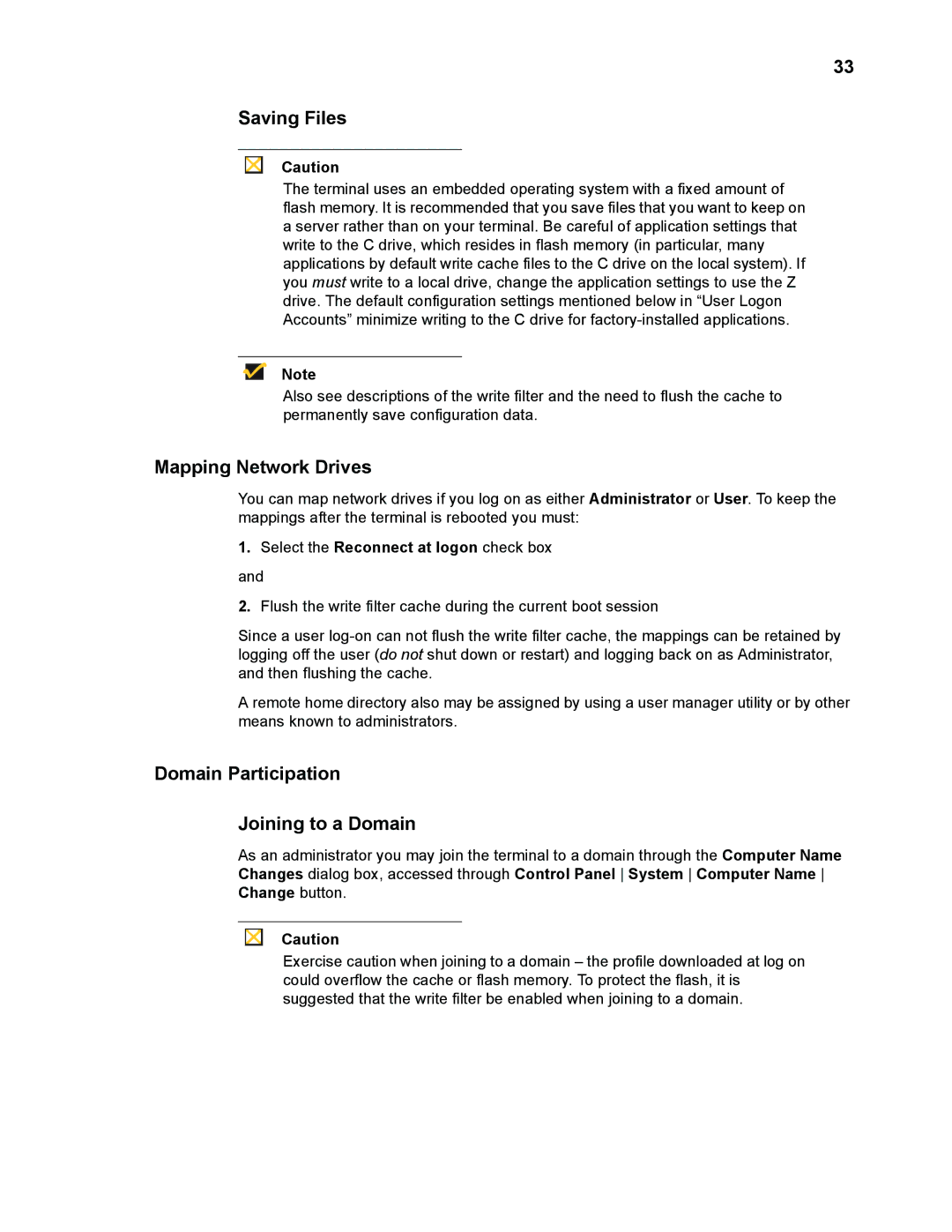
33
Saving Files
Caution
The terminal uses an embedded operating system with a fixed amount of flash memory. It is recommended that you save files that you want to keep on a server rather than on your terminal. Be careful of application settings that write to the C drive, which resides in flash memory (in particular, many applications by default write cache files to the C drive on the local system). If you must write to a local drive, change the application settings to use the Z drive. The default configuration settings mentioned below in “User Logon Accounts” minimize writing to the C drive for
Note
Also see descriptions of the write filter and the need to flush the cache to permanently save configuration data.
Mapping Network Drives
You can map network drives if you log on as either Administrator or User. To keep the mappings after the terminal is rebooted you must:
1.Select the Reconnect at logon check box and
2.Flush the write filter cache during the current boot session
Since a user
A remote home directory also may be assigned by using a user manager utility or by other means known to administrators.
Domain Participation
Joining to a Domain
As an administrator you may join the terminal to a domain through the Computer Name Changes dialog box, accessed through Control Panel System Computer Name Change button.
Caution
Exercise caution when joining to a domain – the profile downloaded at log on could overflow the cache or flash memory. To protect the flash, it is suggested that the write filter be enabled when joining to a domain.
